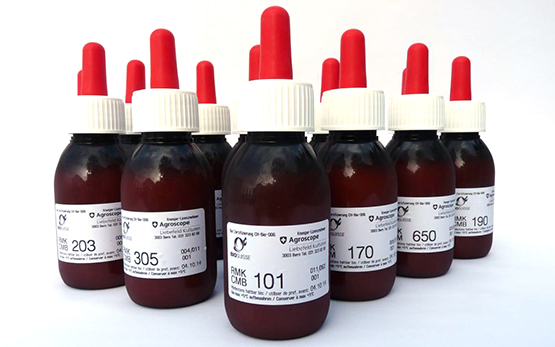Bacterial cultures are indispensable for the production of both cheese and fermented milk and meat products. At Agroscope , the tradition of developing and producing a wide array of bacterial cultures for the manufacture of fermented milk and meat products is already over a century old. The unique collection of strains of around 10'000 bacterial isolates from Switzerland encompassing 350 different species and characterised by a high degree of biodiversity forms the basis for the development of new cultures.
The development activities pursue two primary goals: firstly, to continually adapt the range of traditional starter cultures produced at Agroscope to the needs of practitioners, and secondly, to develop cultures with specific additional benefits at Agroscope . The latter include cultures enabling a proof of origin to be issued for the cheese, and cultures that can be used to deliberately influence the flavour of the product or to inhibit the growth of undesirable bacteria such as Clostridia and Listeria. The aim is to offer these additional cultures predominantly in lyophilised form.
Swiss-origin bacterial cultures make a contribution to so-called Swissness. In addition, the use of Agroscope cultures, which optimally cover the needs of the Swiss food industry, supports the potential promising positioning of fermented foods in the liberalised market.






